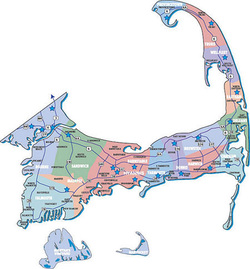|
There has been an on-going battle in the life insurance industry involving term life insurance and whole life insurance. The industry has survived the battle but the consumer is still asking the same question. Which one is better? The question is flawed because these two policies serve two different purposes. The real battle comes over the concept of buying term and investing the difference or the purchase of permanent life insurance. The proponents of buy term and invest the difference surmise that the policyholder would do better investing the difference in premium costs that you save by purchasing a term policy rather than a whole policy. Permanent life insurance was never created to be an investment. It was created to take care of permanent life insurance needs. The cash value accumulation within permanent life insurance is an added benefit and not an investment feature. The best life insurance portfolio is a combination of both permanent and term life insurance.
Permanent Life Insurance – Permanent life insurance should be purchased for permanent needs. Final expenses and life insurance for retirement are two basic permanent life insurance needs. Life insurance at retirement is critical because it gives you more options to use your retirement benefits for income rather than life insurance. Term Life Insurance – Term life insurance is for temporary needs. Term life insurance will compliment your permanent base of life insurance. Decreasing term and level term riders can be added to your permanent policy to take care of temporary needs like mortgage protection and short term debt. It is important to understand why you are purchasing life insurance. You will be much more content when you establish in your own mind the reasoning behind the purchase. Do a little mini-need analysis. Think about what is important to you and who is important to you. Life insurance is a gift of love.
0 Comments
People spend a lot of money on complicated financial products and it is sometimes difficult to keep track of what products perform what tasks. Many people are not aware of all the financial products that are available or they only know of them vaguely. They may not know how much they cost or the potential benefits they offer. How can consumers make informed decisions on what products they would be willing to buy if they do not have this basic information? This problem can often lead to consumers buying unsuitable of overpriced products simply because they feel they should have some financial protections available but don’t have the details to make an informed choice.
One of the common questions many consumers have is regarding the difference between insurance policies and assurance policies. Put simply, insurance policies cover the costs of an event that might happen while assurance policies will pay out on the occurrence of an event that is certain to happen. Insurance policies only last for a specific period of time. If the event occurs within that time, they pay out, otherwise they are finished. Therefore, if no claim can be made within the term of the policy, they have no remaining value. <b>Guaranteed Payout</b> An assurance policy is different. Assurance policies always pay out. For example, a life assurance policy will generally pay out upon death or upon reaching the age of 65. How does this policy work? Well, they combine two elements; an insurance element, which will pay out if, the person dies early. This will then be used to pay for the funeral or support his family. But then there is another payment made every year and this is the investment portion. The insurance company invests this part of the premium on behalf of the policyholder and when they reach the age of 65, they pay this out. Life assurance policies are therefore often used both as a method of life insurance and as a method of saving for retirement. <b>Do You Need Money Now?</b> If you wish to cash in the investment portion of a life assurance policy early this is generally possible. However, there will usually be hefty penalties added to this so it is unadvisable to cash in early if you don’t have to. The distinction between insurance and assurance is also becoming more blurred as more companies offer both types of policy or add features of one type of policy to their other type to make them more attractive. The distinction is still important so that you know what to ask for and know what kinds of facilities are available for insuring your life and providing for your future. Buying life and health insurance products is something that many of us keep putting off for as long as we possibly can. We know that we should buy into these insurance policies but we tend to shelf the idea, preferring to live for today rather than plan for tomorrow. Rather like an ostrich sticking its head in the sand, a lot of us it seems choose to take our chances in the hope that our circumstances will never merit the use of life or health insurance. But it can be an awfully big gamble to take.
Advantages of a life and health insurance policy As we get older we often become more susceptible to health problems, disability and poor mobility; eventually of course we will all die. Both situations are naturally very distressing for family and dependants. However, the situation can be made worse if the ill / deceased was the main income producer and there are still bills to pay. The last thing anybody wants in this situation is to have the bailiffs knocking at the door, or your home repossessed because you cannot keep up your mortgage repayments. A life and health insurance policy combines cover for the likely and the inevitable. By opting to take out a life and health insurance policy you and your family will have peace of mind that should you become critically ill or die during the term of the policy, your family and dependants will be financially secure. There will be no worries about bailiffs or repossession orders and through the health insurance side of the policy you'll be able to select a level of quality health care to suit your needs rather than relying on treatment through the NHS. Cover provided by a life and health insurance policy The cover provided by a life and health insurance policy is quite comprehensive. On the life insurance side of the policy you will be able to choose between a term life insurance product and a reducing or decreasing life insurance product. Term life insurance via the policy pays out a fixed lump sum upon the death of the policyholder, providing the insurance policy is still active. A reducing term life insurance policy is a type of insurance where the amount paid out upon death reduces to zero in line with the policyholder's mortgage balance, and is suitable only as a financial instrument with which to pay off the mortgage in the event of an early death. If you want to leave your loved ones in complete financial security then a term life option on the policy is recommended. The health insurance part of the mega insurance policy provides comprehensive health care. It will cover you for all diagnosis, treatment and recovery costs associated with the illnesses, disability and diseases noted on the mega policy. Health insurance also means that you do not have to wait for treatment on the NHS. Instead, you will be able to select when and where you want to receive treatment, so tailoring it to your own convenience. Whole Life Insurance, Trends, and Staying Power
Whole life insurance provides customers with a life insurance policy that will help their loved ones in the future, and with an investment component that will help customers and their families right away. This mixture of delayed and instant gratification has been attractive to life insurance shoppers for decades, but today’s trend in life insurance is moving away from whole life insurance packages. Once, whole life insurance policies were the standard, but today they are the exception. As the economy changes and the American public become increasingly savvy about money management, the full service that a whole life insurance policy provides just isn’t as necessary as it used to be. People who want a more hands on approach to investing are likely to find a whole life insurance policy too limiting. And, the amount of money that one of these policies requires each month can make it difficult to pursue other investment options, especially for middle and lower class families who are living on a budget. A lot of financial experts today feel the investment portions of whole life insurance policies do not offer customers the best return rate on their money. This provides an incentive for people to purchase term life insurance policies which do not include any investment components, and then invest their money elsewhere. However, there are still some advantages to purchasing a whole life insurance policy. Although the investments that an insurance company will make on your behalf may not be the most lucrative, they will almost certainly be among the most stable. Many people prefer a lower rate of return with a lower chance of loss rather than a riskier gamble. There is plenty to be said in favor of this perspective, especially when it comes to planning for the future. In addition, people who do not have the discipline or inclination to save money on their own often find the structured saving a whole life insurance policy requires to be a boon. If the idea of budgeting your own savings plans and spending time researching hot stock tips appeals to you, a whole life insurance policy probably won’t be to your personal taste. Of course, even if you don’t opt for this tried and true kind of policy, you can be certain that someone else will. Although today’s trends seem to foretell the end of the whole life insurance policy, there are still enough customers interested in this kind of traditional and conservative policy that insurance companies will be likely to offer this kind of coverage for many years to come. Worried about the spiraling life insurance premium? We have enlisted 5 quickest ways to lower your life insurance premium. Well, keep these points in mind but do tread with caution and act prudently.
Shop around and Bargain Shop, Compare and Bargain! Well, the oldest principle, old as dirt, but still going strong. Once decided on your coverage, don’t just sign up for the first plan that crosses your eye. Ensure that you shop around (internet is a great place to start) and get a feel of the market. This would help you to bargain hard and get the greatest coverage at the lowest possible price. Opt for Term Life Insurance – The quickest way to lower your life insurance premium is to opt for Term Life Insurance policy instead of a whole-life policy. The idea is to keep insurance as what it is and not turn it into an investment product. Thus, you can get yourself insured under term life policy at the fraction of the cost of a whole-life scheme with typically the same coverage amount. However, do not forget that Term Life Insurance covers you only for a pre-defined period of time. Keep yourself Fit – Be a low risk proposition for your insurance provider by maintaining a healthy lifestyle and keeping yourself away from addictions such as smoking, drugs and alcohol. A good health record will result in considerable reduction in your life insurance premiums. Consult an Insurance Advisor - To reduce your life insurance premium, the easiest thing you can do is to consult a good Insurance Advisor. Since the advisor will be pro in the insurance marketplace, he/she would be able to get you to the most affordable deal in line with your coverage requirements. Essentially a good insurance advisor would compare different market rates for you and would also negotiate the best rates on your behalf. Well, internet is a great place to identify an agent. Start at a young age! Insure yourself at a young age. Life insurance premium at a young age is only a fraction of what it could be when you are well into your middle-age. The premise is young and healthy people are the lowest risk segment. The low mortality risk is a great incentive for insurance companies to insure you at lower premiums. Although it makes sense to get in touch with a life insurance company to cover your dependents in the eventuality of your untimely death, there are integrity issues surrounding the insurance companies and agents. Broadly there can be 3 ways your life insurance company is scamming you. We have enlisted them for your benefit.
Selling Coverage that you don’t need! The insurance companies thrive on the fact that most people don’t understand their life insurance needs. With standard products, they try to sell you coverage that you might not need, but, which are lucrative for them. The insurance agents expedite the process so that you skip the fine print and sign up for a coverage that is ill-suited to your needs. The trick is to play on your fear factor and sell you heavy insurance, even if you don’t have dependents. Coaxing you to pay ‘Cash’ We strongly suggest, do not pay your premium through cash to an agent. Further, do ensure that you get a receipt for the payment. There are numerous fraudulent entities posing as genuine insurance agencies that extract hard cash from you in lieu of insurance premium. They ask you to sign at blank spaces in a form, assuring you that it is just a formality. Once you have fallen for their trick, you are left without an insurance coverage. The worst part is that most victims only come to know of this scam, when they have met with some mishap and there is not insurance to cover them. Luring you with benefits! Insurance agencies and agents have a way of promising you unbelievable benefits out a life insurance policy. Life insurance agents might offer you plans, with a guarantee that the policy would run premium-free for a specific period. Some agents play it smart and offer you great discounts for signing you up for a new policy, while replacing an old policy. The trick is that the old coverage gets terminated and new coverage does not get initiated due to the cumbersome procedural bottlenecks. Thus, exposing you to risk without cover.  Coastal Flood Area - Cape Cod, MA Coastal Flood Area - Cape Cod, MA BY ANGELA GREILING KEANE, BLOOMBERG May 6, 2014 (Bloomberg) -- More than half the U.S. population lives in coastal areas that are “increasingly vulnerable” to the effects of climate change, which will ripple throughout the U.S. economy, a White House advisory group’s report concluded. The report released today enumerates the impact across the U.S., including a 71% increase in heavy rain and snow in the Northeast during the past half-century and an increased risk from hurricanes linked to higher sea levels.  Published: Monday, 2 Dec 2013 | 10:09 AM ET By: Andrew Osterland, Special to CNBC.com All three financial advisors interviewed say the wild card—and potential budget killer—is health care. According to Ward, a couple over age 65 can expect to spend $600 per month each between contributions to Medicare, any Medicare supplemental plan and out-of-pocket medical costs. "It's the biggest expense for retirees," he said. If a health crisis necessitates long-term care, the expenses can be crippling. Long-term care insurance costs approximately $200 per month per person; people should determine whether they want coverage now or will pay for potential costs out of their own pockets should the time come. Wealthy, poor and single people may choose the latter option, but insurance is probably a good idea for the bulk of middle-class married couples. "We generally recommend long-term care insurance for most people," Edelman said. "It's usually health care that causes a crisis for people in retirement." —By Andrew Osterland, Special to CNBC.com |
better Insurance
|
-
HOME
- Send me a Home Insurance Quote >
- FLOOD Insurance, Massachusetts >
- Cape Cod Home Insurance
- Pay Your Home Insurance Bill Online
- Ordinance or Law Coverage
- How to Prevent a Claim on your Home Insurance Policy
- Videos - Cape Cod Real Estate Tips >
- Cape Cod Massachusetts Arbella Insurance Discounts
- Cape Cod Massachusetts Lloyds of London Home Insurance
- Safety Insurance Discounts for Cape Cod, Massachusetts
- MPIUA - MA Property Insurance Underwriting Association "Fair Plan"
- Cape Cod Massachusetts Home Protection Insurance
- Hurricane Preparedness >
-
AUTO
- Send me an Auto Insurance Quote for Cape Cod, Massachusetts
- BOAT Insurance >
- Cape Cod, MA Dept. of Motor Vehicles
- Cape Cod Massachusetts - Report an Auto Insurance Claim
- Auto Insurance Quote - CAR BUYING TIPS : Auto Insurance for Cape Cod, MA
- InControl Driver Training
- Car Insurance for Cape Cod Massachusetts - Arbella Insurance - Send me an Auto Quote >
- Plymouth Rock - Send me an Auto Quote >
- Encompass Insurance Discounts
- Safety Insurance - Send me an Auto Quote >
- Travelers Insurance Discounts
- Progressive Insurance - Send me an Auto Quote
- LIFE
- OFFICES
- ABOUT US
- Stay Home
- Home Insurance Explained
- Agent Login
- Privacy Policy
- Videos - Cape Cod Real Estate Investing, Taxes & Insurance
- Videos - Cape Cod Coastal Real Estate
- Português
Arthur D. Calfee Insurance Agency, Inc. is a friendly local insurance agency proudly offering Massachusetts, Cape Cod and the Islands. A-Excellent AM Best rating, A+ Excellent by the BBB
Using innovative thinking, cutting-edge tools and expert resources at national and local levels, we deliver the best possible outcome on every policy we manage. Need Home Insurance? Easy, Fast, & Secure Home Insurance. Get Free Quotes 100% Online Now! Available 24/7. Affordable Rates. Cover Your Biggest Investments. Get a homeowners insurance quote, find coverage options. We'll help you understand and customize the right home insurance coverage for you.
Home is where your heart is—along with a healthy chunk of your net worth. Get started today with a free homeowner's quote.
Compare home insurance quotes today and save on protection for your biggest investment. Build a Custom Policy & Make the Switch! Our local underwriting professionals focus exclusively on finding the best home insurance, homeowner's insurance, hazard insurance, investment property insurance, flood insurance, flood zone information, vacation home insurance, second home insurance, auto insurance, collector car insurance, business insurance, general liability insurance, property insurance, professional liability insurance, contractor's liability insurance, worker's comp insurance, key man insurance, whole life insurance, term life insurance, group or personal disability, & long-term care insurance policies to patrons in the following Cape Cod, Massachusetts towns, communities and villages: Barnstable, Bourne, Pocasset, Brewster, Buzzards Bay, Centerville, Chatham, Cotuit, Craigville, Dennis, East Dennis, Eastham, Falmouth, East Falmouth, Hatchville, West Falmouth, North Falmouth, Woods Hole, Harwich, Hyannis, Hyannisport, Martha's Vineyard, Nantucket, Marstons Mills, Mashpee, Orleans, Osterville, Provincetown, Sandwich, Sagamore, Sagamore Beach, Truro, Wellfleet, Yarmouth, and Yarmouthport. Real-Time Pricing. Insurance coverage: Wind Damage, Fire Loss, Water Damage. Protect your home and belongings. Low Rates For Your Best Options to Save Money On Great Coverage! Get a quote today. Home insurance helps protect your house and your family.
Using innovative thinking, cutting-edge tools and expert resources at national and local levels, we deliver the best possible outcome on every policy we manage. Need Home Insurance? Easy, Fast, & Secure Home Insurance. Get Free Quotes 100% Online Now! Available 24/7. Affordable Rates. Cover Your Biggest Investments. Get a homeowners insurance quote, find coverage options. We'll help you understand and customize the right home insurance coverage for you.
Home is where your heart is—along with a healthy chunk of your net worth. Get started today with a free homeowner's quote.
Compare home insurance quotes today and save on protection for your biggest investment. Build a Custom Policy & Make the Switch! Our local underwriting professionals focus exclusively on finding the best home insurance, homeowner's insurance, hazard insurance, investment property insurance, flood insurance, flood zone information, vacation home insurance, second home insurance, auto insurance, collector car insurance, business insurance, general liability insurance, property insurance, professional liability insurance, contractor's liability insurance, worker's comp insurance, key man insurance, whole life insurance, term life insurance, group or personal disability, & long-term care insurance policies to patrons in the following Cape Cod, Massachusetts towns, communities and villages: Barnstable, Bourne, Pocasset, Brewster, Buzzards Bay, Centerville, Chatham, Cotuit, Craigville, Dennis, East Dennis, Eastham, Falmouth, East Falmouth, Hatchville, West Falmouth, North Falmouth, Woods Hole, Harwich, Hyannis, Hyannisport, Martha's Vineyard, Nantucket, Marstons Mills, Mashpee, Orleans, Osterville, Provincetown, Sandwich, Sagamore, Sagamore Beach, Truro, Wellfleet, Yarmouth, and Yarmouthport. Real-Time Pricing. Insurance coverage: Wind Damage, Fire Loss, Water Damage. Protect your home and belongings. Low Rates For Your Best Options to Save Money On Great Coverage! Get a quote today. Home insurance helps protect your house and your family.
Testimonials & Endorsements for the Best Insurance Agent on Cape Cod, MA
PHONE: (800) 479-2601 CUSTOMER SUPPORT & SERVICE
Please note: The above is meant as general information to help you understand the different aspects of insurance. This information is not an insurance policy, does not refer to any specific insurance policy, and does not modify any provisions, limitations, or exclusions expressly stated in any insurance policy. Descriptions of all coverages and other features on this page are necessarily brief; in order to fully understand the coverages and other features of a specific insurance policy, we encourage you to read the applicable policy and/or speak to an insurance representative. Coverages and other features vary between insurers, vary by state, and are not available in all states. Whether an accident or other loss is covered is subject to the terms and conditions of the actual insurance policy or policies involved in the claim. References to average or typical premiums, amounts of losses, deductibles, costs of coverages/repair, etc., are illustrative and may not apply to your situation. We are not responsible for the content of any third-party sites linked from this page.
© 2024 Copyright, Arthur D. Calfee Insurance Agency, Inc.
Calfee Cares.® Privacy Policy
Calfee Cares.® Privacy Policy












 RSS Feed
RSS Feed











